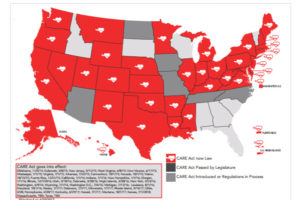Clear connection between caregiver and care recipient well-being.

Emergency room providers have long asserted that exhausted caregivers may be more inclined to take loved ones with health issues or disabilities to emergency rooms when they need a break—a trend sometimes called “pop drop.” Yet, little research has studied the trend. The new study supports the notion that caregiver stress may be a factor in the need for emergency medical care.
How Caregiver Stress Drives Emergency Room Visits
The study analyzed data on 3,101 couples who lived at home. In each couple, one spouse served as a caregiver to a spouse older than 65 with a disability that affected at least one activity of daily living. Researchers measured caregiver sleep quality, depression symptoms, and overall health using the Jenkins Sleep Scale, Center for Epidemiologic Studies Depression-8 Scale, and caregiver self-reports on health.
The study’s authors say their research points to a clear connection between caregiver and care recipient well-being. By intervening with overwhelmed caregivers, emergency room staff may be able to improve the health of both care recipients and those who care for them.
References:
- Ankuda, C. K., Maust, D. T., Kabeto, M. U., Mccammon, R. J., Langa, K. M., & Levine, D. A. (2017). Association between spousal caregiver well-being and care recipient healthcare expenditures. Journal of the American Geriatrics Society. doi:10.1111/jgs.15039
- ‘Pop drop’ study finds more ER visits, higher costs for older disabled patients. (2017, August 24). Retrieved from https://www.sciencedaily.com/releases/2017/08/170824090105.htm
Contributed by Zawn Villines, GoodTherapy.org Correspondent
© Copyright 2017 GoodTherapy.org. All rights reserved.











